#SDGs in india
Explore tagged Tumblr posts
Text
Challenges and Opportunities in Achieving SDG Goals in Rural India
India's commitment to the United Nations Sustainable Development Goals (SDGs) underscores its resolve to create a more equitable, sustainable, and prosperous society. However, achieving these goals in rural India, where 65% of the population resides, presents unique challenges and opportunities. Bridging the rural-urban divide is critical to the success of SDG initiatives in rural areas, as this will determine India's progress in achieving the SDGs by 2030. With rural areas forming the backbone of the country, the success of rural development in India is crucial for achieving the SDGs.

SDG Opportunities in Rural Areas
Digital Transformation: UPI and Internet BankingThe introduction of UPI and internet banking has revolutionized financial inclusion in rural areas. Villages are increasingly adopting digital payment systems, reducing reliance on cash and empowering small-scale entrepreneurs. These developments align with goals for decent work and economic growth (SDG 8).
Modern Farming TechniquesSustainable development in rural India can be boosted by introducing modern farming methods such as drip irrigation, precision farming, and organic agriculture. These techniques not only enhance productivity but also contribute to responsible consumption and production (SDG 12).
E-learning and Education TechnologyE-learning platforms and digital classrooms are bridging the educational divide in rural India. Initiatives like the PM e-Vidya scheme provide children with access to quality education and skill development, contributing to SDG 4.
Improved Healthcare SystemsInvestments in telemedicine, mobile healthcare units, and community health initiatives are improving healthcare access in rural areas. These advancements address critical health challenges and help achieve SDG 3.
Employment and Skill Development PoliciesGovernment programs like MGNREGA, Skill India, and Start-Up India are creating job opportunities and fostering entrepreneurship in rural areas. These initiatives drive rural development in India and support SDG goals for reducing inequalities (SDG 10) and promoting economic growth (SDG 8).
Women Empowerment ProgramsEfforts to empower women through self-help groups, education, and vocational training are breaking barriers and driving progress toward gender equality (SDG 5). Empowered women play a crucial role in uplifting rural communities.
Sustainable development in rural areas can be achieved through decentralized planning at the national and state levels, with decision-making powers also granted at the village level, where grassroots needs can be realistically understood. If decentralized planning involves community participation, it will lead to better development of rural areas and communities. This approach will help village panchayats implement development plans. They would create their own development strategies and sustainable environments, realizing collective gains through solidarity and harmonious association. It would also assist them in organizing and reformulating socio-economic and developmental activities, gradually eliminating poverty, improving health conditions, and reducing illiteracy. This would lead to better use of government resources and fulfill development goals in line with the ideas of the 73rd Constitutional Amendment Act (CAA).
SDG Challenges in Rural India
India has not been successful in attaining prioritized socio-economic growth and equitable distribution of welfare for the rural poor. The rural population is basically dependent on agriculture and other connected farm and non-farm activities as their means of livelihood. It is also no denying the fact that the government of India had launched a series of rural development programmes to achieve the UN mandated Sustainable Development Goals (SDGs) with a view to eliminating poverty, illiteracy, etc. targeting the majority of the population. Still there are many reasons why SDGs are lagging behind in India’s rural regions like:
Poverty and Inequality:Rural India is still grappling with significant poverty and income inequality. Many families struggle to access basic necessities such as food, shelter, and clean water, creating barriers to achieving SDG goals like zero hunger (SDG 2) and no poverty (SDG 1).
Education Deficits:Despite progress, access to quality education remains a challenge in rural areas. Inadequate infrastructure, a shortage of qualified teachers, and a lack of digital resources hinder efforts to achieve inclusive and equitable education (SDG 4).
Healthcare Infrastructure:Rural healthcare faces challenges such as insufficient medical facilities, a lack of trained professionals, and limited awareness of preventive care. This affects efforts to ensure good health and well-being (SDG 3).
Environmental Concerns:Unsustainable agricultural practices and deforestation contribute to environmental degradation, affecting SDG goals related to climate action (SDG 13) and life on land (SDG 15).
Gender Inequality:Deep-rooted cultural norms often restrict opportunities for women in rural India, impacting gender equality (SDG 5) and reducing the potential for holistic community development.
While sustainable development in rural India poses challenges, the opportunities to make a transformative impact are immense. Rural SDG initiatives must focus on leveraging technology, fostering public-private partnerships, and promoting community-driven approaches to development. With targeted efforts and innovative solutions, rural India can serve as a model for achieving the SDGs, contributing significantly to a brighter, more sustainable future.
By addressing the challenges and harnessing the opportunities, India can pave the way for an inclusive and resilient society where rural areas thrive alongside urban centers. Achieving the SDG goals in rural India is not just a necessity but a testament to the power of collective progress.Original Source: bit.ly/sdgsagenda For more information
0 notes
Text

Portfolio - Valuable Partners
Valuable Partners showcases its expertise across industries with a diverse portfolio, especially the ones with UN sustainable goals. We strive to deliver tangible results and exceed expectations on every project by providing debt funds to growing startups and initializing capital optimization.
0 notes
Text
Multidimensional Poverty in India: A Deep Dive
What are your thoughts on multidimensional poverty in India? Share your experiences, questions, and ideas in the comments below!
India Shining, or Just a Mirage? A Closer Look at Poverty’s Many Faces The 2024 Lok Sabha elections were a wild ride, weren’t they? We saw a familiar face return to power, yet the streets whispered of economic anxieties. Amidst the fanfare of “India Shining,” concerns about joblessness, rising prices, and inequality echoed louder and louder. It’s like the government’s throwing a big party, but…
#agriculture#deprivation#Education#energy access#financial inclusion#health#healthcare#India#MPI#multidimensional poverty#NITI Aayog#poverty#poverty indicators#poverty reduction#SDGs#standard of living#technology
0 notes
Text
UNESCO Inclusive Policy Lab नेटवर्क से जुड़े बागपत के अमन कुमार
यूनेस्को आईपीएल नेटवर्क से जुड़े बागपत के अमन कुमार
यूनेस्को के इन्क्लूसिव पॉलिसी लैब नेटवर्क से जुड़े अमन कुमार, कॉन्टेस्ट 360 प्रोजेक्ट के अंतर्गत युवाओं को सशक्त करने पर हुआ चयन बागपत। संयुक्त राष्ट्र (United Nations) के सतत विकास लक्ष्यों (Sustainable Development Goals) पर कार्य कर रहे सामाजिक कार्यकर्ता अमन कुमार (Indian Social Worker Aman Kumar) को यूनेस्को के इन्क्लूसिव पॉलिसी लैब (UNESCO Inclusive Policy Lab) नेटवर्क की सदस्यता मिली है।…

View On WordPress
#career development#Changing Chalks Award#Contest 360#digital empowerment#education opportunities#HundrED#ICT tools#inclusive access#Indian social worker#information gap#personal development#professional development#SDG 10#SDG 17#SDG 4#SDG 5#SDGs#social impact#Sustainable Development Goals#u reporter#U-Ambassador#UNESCO Global Youth Community#UNICEF India
0 notes
Text
Do’s And Dont’s For AEs And SDRs In A Saas Sales Environment

Here are some Do’s and Don’ts for Account Executives (AEs) and Sales Development Representatives (SDRs) in a SaaS business to help achieve predictable results:- https://grovaleulers.com/dos-and-donts-for-aes-and-sdrs-in-a-saas-sales-environment/
0 notes
Text
UN SDG Lab
Coorg Public School and PU College, Gonikoppal South Kodagu, Karnataka
☂️
Coorg Public School and PU College in Gonikoppal, South Kodagu, Karnataka, has taken an inspiring initiative through their UN SDG Lab activity, aligned with Sustainable Development Goal 12: Responsible Consumption and Production.
Their dedication to promoting responsible consumption and production is exemplified through their creative approach of making paper bags. These eco-friendly paper bags not only serve as an environmentally conscious alternative but also contribute to reducing plastic waste in their community. What's truly commendable is their commitment to spreading awareness about the importance of sustainable consumption and production practices.
The involvement of students as UN Volunteers in this endeavor demonstrates a profound sense of responsibility and global citizenship. Through their efforts under the banner of COPS-UNV, they are making a meaningful impact not only within their school but also in the broader context of sustainable development.
Coorg Public School and PU College's dedication to SDG-12 serves as an inspirational example of how educational institutions can play a pivotal role in fostering positive change, both locally and globally, by actively engaging in initiatives that align with the United Nations' Sustainable Development Goals.
#SDG12 #poomaunv #coorgpublicschool #unitednations #UNGlobalCompact #UNgoals #karnataka #coorgdiaries #kodagu #UNVIndia #studentsunvolunteers #education #school

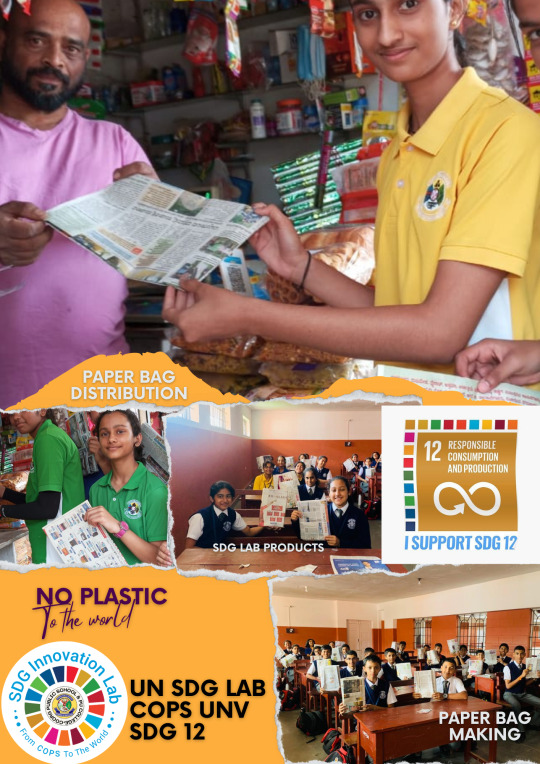
#uno#ungc#education#united nations#coorg#karnataka#sdgs 17 項目#sdgs2030#p#poomaunv#coorgpublicschool#india#studentsunitednations#studentsunv#school system
0 notes
Text
Get out of your bubble, experience what it means to live in as vulnerable community!
When you look at things with a different light, things start to change. You discover new formats, ask different questions and find different answers. Just imagine you are a manager from a high level company. You do business trips, you sit in meetings, you manage high level projects. Suddenly, you are asked to spend a week in rural India. For getting insights. Different ones – out of your comfort…

View On WordPress
0 notes
Text

Article
The number of children dying under five years of age declined by two thirds over the past two decades in Southern Asia, according to new mortality estimates released by UNICEF, the World Health Organization (WHO), the United Nations Population Division and the World Bank Group. Southern Asia includes nine countries: Afghanistan, Bangladesh, Bhutan, India, Iran, Maldives, Nepal, Pakistan, and Sri Lanka.
The report reveals that the number of child deaths under 5 years of age decreased from 5 million in 1990 to 1.3 million in 2022. The report also shows that Southern Asia’s under five mortality rate, or the probability that a child would die before five years of age, reduced by 72 per cent since 1990, and 62 per cent since 2000.
“We have made heartening progress to save millions of children’s lives since 1990. These aren’t just numbers on a page – these are children’s lives saved, sons and daughters, brothers and sisters. This success is largely due to investments in trained health workers, improvements in newborn care, treatment of childhood illnesses and vaccinations for children against deadly diseases,” said Sanjay Wijesekera, UNICEF Regional Director for Southern Asia. “This progress shows us that change is possible. These lives saved are testament to the engagement and will of governments, local organizations, health care professionals such as skilled birth attendants, parents, and families to save the most vulnerable children.” ...
Despite this progress, however, much more needs to be done...
The report also reveals that progress among countries is uneven. Three countries (Iran, Sri Lanka and Maldives) have achieved the SDG 2030 target for under five child mortality reduction and four are on track to meet the target (India, Bangladesh, Bhutan and Nepal). For example, Bangladesh’s neonatal mortality rate decreased from 66 deaths per 1,000 live births in 1990, to 17 deaths per 1,000 live births in 2022.
However, in Pakistan and Afghanistan, urgent action is required to accelerate their annual rates of reduction substantially to meet 2030 targets...
“We call on governments across the region to invest in simple solutions such as having trained birth attendants at every birth, ensuring that all newborns have essential care, better care of small and sick newborn babies, medicines, clean water, electricity, and vaccines to save lives. Every child has the right to healthcare.”
-via UNICEF, March 14, 2024
#children#cw infant death#cw child death#neonatal#public health#south asia#asia#iran#sri lank#maldives#india#bangladesh#bhutan#nepal#pakistan#afghanistan#medical news#children's rights#infant mortality#unicef#good news#hope
235 notes
·
View notes
Text
As the global trend of schoolification pushes educational systems toward standardization, which emphasizes “preparation for school rather than preparation for life,” innovative approaches that address the how’s, what’s, and why’s of education are critically needed. This prevailing shift, intensifying in the late 90s, often sidelines essential skills like creativity, collaboration, and critical thinking, that are crucial for equipping young learners to tackle global challenges. It also overlooks learners’ well-being and joy—a rising concern in educational circles.
A number of organizations and projects are working to combat the schoolification trend. UNESCO’s Happy Schools initiative hopes to tackle the problem by creating safe, developmentally appropriate, and joyful learning experiences that span multiple learning goals. The OECD’s Future of Education and Skills Project launched in 2019 focuses on how the science of learning can foster best practices for developing holistic education systems that balance academic skills with emotional, social, and practical competencies essential for the 21st century. Further, a number of countries are beginning to address curricular and pedagogical quality through policy initiatives, such as those in Ghana, Vietnam, Singapore, and India, to name a few.
As countries and organizations develop new ways to support U.N. Sustainable Development Goal (SDG) 4, one program from the Global South emerges as a critical response to these issues. In this blog, we explore how methodologies like those developed by Education for Sharing (E4S) champion playful learning and prepare our youth not just for academic success but as proactive, informed global citizens.
7 notes
·
View notes
Text
Marpu foundation and CSR; A strategic approach to sustainable development

India has been a frontrunner in driving Sustainable Development Goals (SDG) implementation within several areas such as poverty, education and climate change. Within this undertaking, Marpu Foundation have been determined to meet SDG goals through efforts in water conservation, infrastructure development and climate action. Here we look at the how working with Marpu Foundation though CSR strategies will help you organization contribute to achieve you missions.
Corporate Social Responsibility (CSR)
Businesses are believed to have a great responsibility to society and environment. Therefore when companies think about their corporate social responsibility (CSR) strategies, choosing the right partner is essential. Companies must make sure that The NGO they choose align with their missions and provide the desired impact. In addition, to ensure the success of CSR initiatives, it is necessary to work with experts that understand the complexities of sustainable development.
Organizations like Marpu Foundation, has expertise in delivering impactful community driven CSR projects. In addition, Marpu Foundation has worked across 22 states, with projects in education, health or environmental conservation. Companies can choose a cause and make a donation and witness the effects of their contributions.
Water reservation; Providing clean water for all

Marpu Foundation has embarked on water conservation projects to provide water reservoirs in rural areas. These initiatives aim to address clean water scarcity and promoting efficient use of clean water. Marpu foundation had been taking part in initiatives such as;
Bore well construction; bringing alternative sustainable water source in areas of water shortage
Water plant installation; ensuring access to safe drinking water for impoverished communities
Check dam construction; promoting efficient use of existing water sources.
These initiatives have significantly improved clean water availability for thousands of households. Therefore working with Marpu Foundation will help strengthen such the impact of these initiatives, by ensuring they are sustainable and long term.
Promoting gender equality and empowerment

Marpu Foundation is also working on gender quality project that align with SDG 5; gender relation, equality. Through helping woman gain access to education and employment, Marpu foundation empowers woman and girls, ensuring their participation in all spheres of life. Marpu foundation runs programs that provide skill training, financial literacy p and micro loan opportunities. These projects have helped foster greater gender quality and improving livelihoods of countless women and girls. By collaborating with Marpu Foundation, businesses can contribute to more equitable world for everybody.
Conclusion
Being a CSR initiative partner with Marpu Foundation is a great way for business to extend their CSR initiatives and achieve their desired SDGs. Companies can be sure about the real, sustainable impacts when they utilize Marpu’s expertise to reach the people in need of aid. From contributing to education to raising standards of living, business that work with Marpu Foundation can create meaningful impact within the community.
#MarpuFoundation #NGO #charity #Marpu
2 notes
·
View notes
Text
#2030kabharat#sdg 2030#sdg2030#sdg 17#sdg goals#sdg6#sdgs#sustainable development#sdg4#sdg3#sdg in india#sdg goals in india#haryana sdg index#sd gundam
0 notes
Text

Venture Debt Company
Valuable Partners provides venture debt solutions in India. We fund and guide promising startups and entrepreneurs, fostering growth opportunities and nurturing innovation across various sectors.
0 notes
Text
Innovative CSR Strategies: Collaborating with Marpu Foundation for Sustainable Impact
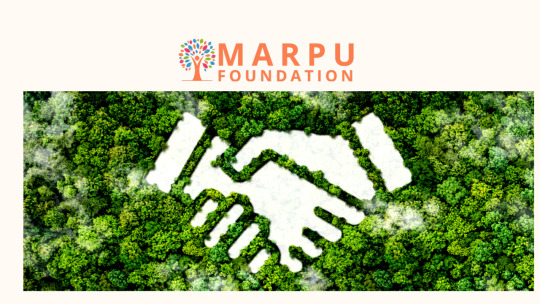
Introduction
India has emerged as a global leader in driving Sustainable Development Goals (SDG) implementation, with numerous projects addressing critical issues like poverty, health, education, and climate action. At the heart of this movement are organizations like the Marpu Foundation, whose efforts in water conservation, nutrition programs, and community engagement exemplify the power of partnerships in creating meaningful change. This article explores the benefits of collaborating with Marpu Foundation through innovative CSR strategies and highlights some of their impactful initiatives.
1. Water Conservation: A Step Towards Clean Water for All
SDG Focus: Clean Water and Sanitation
Access to clean and sustainable water sources remains a pressing challenge in rural India. The Marpu Foundation has been at the forefront of addressing this issue through initiatives such as:
Borewell Construction: Bringing life-sustaining water to drought-prone areas.
Water Plant Installation: Ensuring access to safe drinking water for underserved communities.
For example, in a remote village in Telangana, Marpu partnered with a CSR sponsor to install a solar-powered water purification system, benefiting over 1,000 households and reducing waterborne diseases significantly.
Why CSR Partnerships Matter
Collaborations with NGOs like Marpu amplify the impact of such initiatives by providing resources, technology, and strategic support. Corporations can not only address SDG 6 (Clean Water and Sanitation) but also create a lasting impact on communities, ensuring the sustainability of these projects.
2. Combating Malnutrition Through Targeted Nutrition Programs
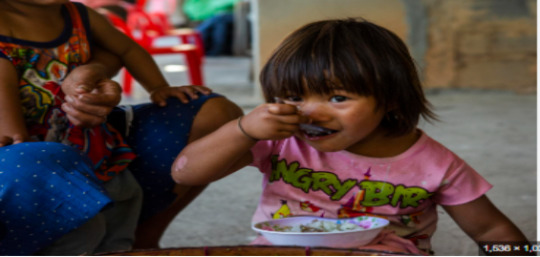
SDG Focus: Zero Hunger & Good Health and Well-being
India’s fight against malnutrition requires a multifaceted approach, and Marpu Foundation plays a vital role by supplementing government programs like Poshan Abhiyaan with grassroots initiatives. Their efforts include:
Conducting nutritional awareness sessions for mothers and children.
Partnering with CSR sponsors to distribute fortified food and essential supplements.
In one notable project, Marpu teamed up with a leading food corporation to establish a community kitchen in a tribal village, providing daily nutritious meals to over 500 children. This initiative not only improved health outcomes but also fostered community participation in tackling malnutrition.
CSR Opportunities
Corporates can scale these programs by funding community kitchens, organizing health camps, and ensuring access to essential resources. These efforts align with SDG 2 (Zero Hunger) and SDG 3 (Good Health and Well-being) while contributing to a healthier and more equitable society.
3. Strengthening Water Accessibility Through Jal Jeevan Mission
SDG Focus: Clean Water and Sanitation
The Jal Jeevan Mission, a government-led initiative, aims to provide safe and adequate drinking water to rural households. Marpu Foundation enhances this mission through community-focused activities, including:
Educating villagers on water conservation and sustainable practices.
Installing rainwater harvesting systems in schools and community centers.
One such collaboration in Andhra Pradesh involved the installation of rainwater harvesting systems in partnership with a corporate CSR sponsor, ensuring year-round water availability for hundreds of families.
The CSR Advantage
By collaborating with NGOs like Marpu, companies can accelerate the progress of initiatives like Jal Jeevan Mission. These partnerships ensure that projects are implemented effectively, reaching the grassroots level and addressing real community needs.
Conclusion
Collaborating with Marpu Foundation provides businesses with an opportunity to implement innovative CSR strategies that address critical social and environmental issues. By supporting impactful projects in water conservation, nutrition, and community engagement, corporations can make a tangible difference while achieving their CSR objectives. Together, we can build a more sustainable and equitable future for all.
2 notes
·
View notes
Text
Marpu Foundation’s Role in Shaping Corporate Social Responsibility
Marpu Foundation has worked its way up to being awarded as “the best NGO in India” in 2020 by aiming and living truthfully by the statement “change within to change the world.” The foundation was established with the aim to harness individual potential to bring about positive change in the world.
By serving as a liaison between companies and social causes, encouraging sustainable practices, and guaranteeing that corporate entities make constructive contributions to society, the Marpu Foundation plays a vital role in forming Corporate Social Responsibility (CSR). The foundation affects CSR in the following ways:
1. Encouraging community involvement:
In order to highlight urgent social concerns like poverty, healthcare, education, and environmental sustainability, the Marpu Foundation works with corporate partners. It enables businesses to better match their corporate social responsibility initiatives with community needs, increasing the significance of their efforts.
2. Encouraging Collaborations:
By serving as a middleman, the foundation assists businesses in collaborating with NGOs, local governments, and other interested parties to implement successful CSR programs. Through these collaborations, businesses may pool resources and knowledge from several industries to bring about sustainable change.
3. Putting Sustainable Practices into Action:
The Marpu Foundation places a strong emphasis on sustainable business methods. The foundation makes sure that CSR programs are not merely one-time events but are incorporated into the company's basic values by urging companies to embrace eco-friendly operations, lower their carbon footprint, and support green technologies.
4. Offering a Social Innovation Platform:
The foundation offers enterprises a social innovation platform where they may test and apply creative solutions to societal problems. As a result, CSR develops an innovative culture that produces more scalable and successful actions.
5. Maintaining Transparency and Accountability:
By offering precise standards for tracking and assessing projects, the Marpu Foundation assists corporations in upholding transparency in their CSR initiatives. It guarantees that CSR efforts are transparent, responsible, and trackable in addition to being merely symbolic.
6. Using Volunteering to Empower Workers:
By establishing corporate volunteering opportunities, the foundation promotes employee involvement in CSR. In addition to raising staff morale, this improves the company's ties to the community and cultivates a feeling of social responsibility in the workforce.
7. Aligning with Sustainable Development Goals (SDGs): The foundation makes sure that corporate CSR initiatives support global efforts towards social justice, equality, and sustainability by coordinating them with global development goals, especially the United Nations Sustainable Development Goals (SDGs).
8. Having an Impact on Corporate Policy:
The Marpu Foundation encourages businesses to incorporate corporate social responsibility (CSR) into their corporate practices through its lobbying and policy activities. This entails advocating for more moral business conduct, conscientious sourcing, and improved treatment of workers, suppliers, and customers.
The Marpu Foundation essentially assists corporations in transitioning from a charity-driven model of corporate social responsibility to one that is sustainable, strategic, and in line with long-term societal impact. This change enables companies to generate shared value whereby they enhance society while simultaneously increasing their profits.
has worked its way up to being awarded as “the best NGO in India” in 2020 by aiming and living truthfully by the statement “change within to change the world.” The foundation was established with the aim to harness individual potential to bring about positive change in the world.
By serving as a liaison between companies and social causes, encouraging sustainable practices, and guaranteeing that corporate entities make constructive contributions to society, the Marpu Foundation plays a vital role in forming Corporate Social Responsibility (CSR). The foundation affects CSR in the following ways:
1. Encouraging community involvement:
In order to highlight urgent social concerns like poverty, healthcare, education, and environmental sustainability, the Marpu Foundation works with corporate partners. It enables businesses to better match their corporate social responsibility initiatives with community needs, increasing the significance of their efforts.
2. Encouraging Collaborations:
By serving as a middleman, the foundation assists businesses in collaborating with NGOs, local governments, and other interested parties to implement successful CSR programs. Through these collaborations, businesses may pool resources and knowledge from several industries to bring about sustainable change.
3. Putting Sustainable Practices into Action:
The Marpu Foundation places a strong emphasis on sustainable business methods. The foundation makes sure that CSR programs are not merely one-time events but are incorporated into the company's basic values by urging companies to embrace eco-friendly operations, lower their carbon footprint, and support green technologies.
4. Offering a Social Innovation Platform:
The foundation offers enterprises a social innovation platform where they may test and apply creative solutions to societal problems. As a result, CSR develops an innovative culture that produces more scalable and successful actions.
5. Maintaining Transparency and Accountability:
By offering precise standards for tracking and assessing projects, the Marpu Foundation assists corporations in upholding transparency in their CSR initiatives. It guarantees that CSR efforts are transparent, responsible, and trackable in addition to being merely symbolic.
6. Using Volunteering to Empower Workers:
By establishing corporate volunteering opportunities, the foundation promotes employee involvement in CSR. In addition to raising staff morale, this improves the company's ties to the community and cultivates a feeling of social responsibility in the workforce.
7. Aligning with Sustainable Development Goals (SDGs): The foundation makes sure that corporate CSR initiatives support global efforts towards social justice, equality, and sustainability by coordinating them with global development goals, especially the United Nations Sustainable Development Goals (SDGs).
8. Having an Impact on Corporate Policy:
The Marpu Foundation encourages businesses to incorporate corporate social responsibility (CSR) into their corporate practices through its lobbying and policy activities. This entails advocating for more moral business conduct, conscientious sourcing, and improved treatment of workers, suppliers, and customers.
The Marpu Foundation essentially assists corporations in transitioning from a charity-driven model of corporate social responsibility to one that is sustainable, strategic, and in line with long-term societal impact. This change enables companies to generate shared value whereby they enhance society while simultaneously increasing their profits.

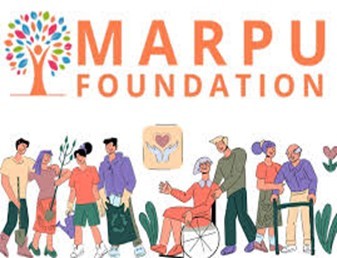
3 notes
·
View notes
Text
ENHANCING CSR IMPACT THROUGH COLLABERATION WITH MARPU FOUNDATION
In this transforming epoch of corporate social responsibility (CSR) the businesses are multiplying in a global basis putting up to sustainable development goals (SDG). If we go to the basics, CSR is a management concept where companies integrate social and environmental concerns in their business operations and interactions with stakeholders. The key to maximizing the impact of CSR lies in making the brand walk-the-talk , a good global citizen and to dedicate oneself to drive sustainable change.
As companies intregate a socially responsible corporate culture, partnering with the Marpu Foundation | NGO can put in their CSR efforts and bring a meaningful change.
“Marpu” means transition or change – was established by the respected National Youth Awardee, Mr. Kadiri Raghu Vamsi. Marpu Foundation | NGO harnesses the individual potential to give rise to a positive change globally. With a team obligated to a fruitful change and providing a support space for all, it had earned the title of “The Best NGO in India” in 2020.
Marpu Foundation’s aim is to empower individuals to voice their aspirations, work towards sustainability, and form alliances with organizations with a shared vision. It’s objective is to be a beacon of transformation, crafting a future that’s equitable, compassionate and sustainable through collective efforts and partnership.
One of the stamps of authenticity of the Marpu Foundation’s CSR strategy is its emphasis on employee volunteering and engagement. It has 80,261+ volunteers and 10,245,120+ beneficiaries operating from 39 locations in 15 branches. Environmental sustainability, economic development, social development and partnerships for the goal is what their work theme is.
Marpu Foundation’s programs involve affordable and clean energy
And Sanitaion, climate action, decent work and economic growth, gender equality, good health and well being, industry innovation and infrastructure and many more. It provides various ways to collaborate and work together on particular projects where one has to chose a CSR aspiration- be it in education , health, or environmental conservation. The dedicated team will not only ensure that your investment is creating tangible impacts but also keep you in loop with regular, insightful updates.
It is trusted enough because it is mentored by the presidential awardee, women activist and governmental servents. Moreover collaborating with Marpu Foundation in a cause- related marketing campaign will not only amplify your brand’s positive image but also seamlessly intregate it with impactful change. Marpu Foundation ensures that it provides sustainable results , creating lasting social and environmental impact. It is committed towards pure transparency and accountability.
In conclusion, boosting the influence of corporate social responsibility requires tactical partnerships with organizations that hold on expertise, assets and dedication to drive sustainable change. Marpu Foundation makes an appearance as the best possible partner for businesses seeking to align their CSR efforts with the Sustainable Development Goals, engaging the employees in significant volunteering activities, and making an ever lasting difference in communities. With Marpu Foundation guiding the path, businesses have a strong ally to maximize their CSR impact and build a better world for all.
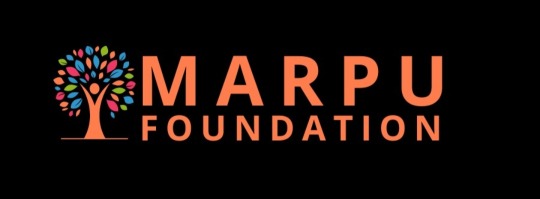
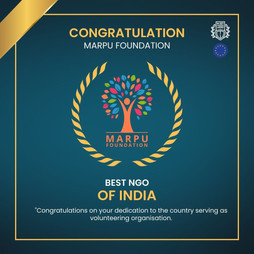
4 notes
·
View notes
Note
defying the rules of your askbox again in hopes to get some interesting humanities facts
cytosine pairs with guanine with 3 hydrogen bonds in a single nucleotide of dna
india is estimated to be unable to achieve all the health related SDGs by 2030 and might take up till 2040 to be able to achieve them
35 notes
·
View notes